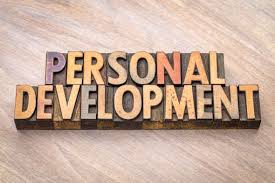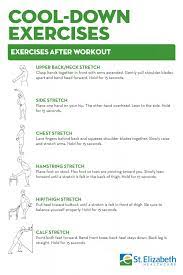The Benefits of Physical Exercise
Physical exercise is not just about getting in shape or losing weight; it has numerous benefits for both the body and mind. Incorporating regular exercise into your routine can improve your overall well-being and quality of life. Let’s explore some of the key advantages of physical exercise:
Improved Physical Health
Engaging in regular physical activity can have a positive impact on your physical health. It helps strengthen your muscles, bones, and joints, improving overall flexibility and mobility. Regular exercise also enhances cardiovascular health, reducing the risk of heart disease, high blood pressure, and stroke.
In addition, physical exercise aids in weight management by burning calories and boosting metabolism. It can help prevent obesity and related health conditions such as diabetes.
Mental Well-being
Exercise not only benefits the body but also has a significant impact on mental well-being. When you engage in physical activity, your brain releases endorphins – chemicals that act as natural mood lifters. This can help reduce feelings of stress, anxiety, and depression.
Incorporating exercise into your routine can improve sleep quality as well. Regular physical activity promotes better sleep patterns, leading to increased energy levels during the day and improved cognitive function.
Increased Energy Levels
Contrary to popular belief, regular exercise actually boosts energy levels rather than depleting them. Engaging in physical activity increases blood flow throughout the body, delivering oxygen and nutrients to your muscles and tissues. This results in improved energy levels and reduced fatigue.
Enhanced Cognitive Function
Physical exercise has been linked to improved cognitive function and brain health. Regular exercise increases blood flow to the brain, promoting the growth of new neurons and improving memory, focus, and overall cognitive abilities.
Studies have shown that individuals who engage in regular physical activity have a lower risk of developing age-related cognitive decline and neurodegenerative diseases such as Alzheimer’s.
Stress Relief
In today’s fast-paced world, stress has become a common part of our lives. Physical exercise is an excellent way to combat stress and its negative effects. When you exercise, your body releases endorphins that act as natural stress relievers, reducing tension and promoting relaxation.
Regular physical activity can also provide a healthy outlet for emotional strain, helping you manage stress more effectively and improve your overall mental well-being.
It is important to note that before starting any new exercise program, it is advisable to consult with a healthcare professional or a qualified fitness trainer to ensure safety and suitability for your individual needs.
In conclusion, physical exercise offers numerous benefits for both the body and mind. From improved physical health to enhanced mental well-being, incorporating regular exercise into your routine can lead to a happier, healthier life. So get moving today!
“Understanding Physical Exercise: Definition and Benefits”
“The Fundamentals: A Guide to Basic Physical Exercises”
4. “The Essential 10: Key Components
- What are 5 physical exercise?
- What physical exercise means?
- What is basic physical exercises?
- What is 10 physical fitness?
What are 5 physical exercise?
When it comes to physical exercise, there are countless options to choose from. Here are five examples of popular physical exercises that can help improve your overall fitness and well-being:
- Running: Running is a versatile and accessible exercise that can be done outdoors or on a treadmill. It helps build cardiovascular endurance, strengthens leg muscles, and burns calories.
- Strength Training: This form of exercise involves using resistance, such as weights or resistance bands, to build strength and muscle mass. Strength training exercises target various muscle groups and can be customized to individual fitness goals.
- Yoga: Yoga combines physical poses, breathing techniques, and meditation to promote flexibility, balance, and relaxation. It not only enhances physical strength but also improves mental focus and reduces stress.
- Cycling: Whether indoors on a stationary bike or outdoors on a bicycle, cycling is an excellent low-impact exercise that strengthens leg muscles, improves cardiovascular health, and burns calories.
- Swimming: Swimming is a full-body workout that engages all major muscle groups while being gentle on the joints. It improves cardiovascular fitness, builds strength and endurance, and provides a refreshing way to stay active.
Remember that it’s important to choose exercises that align with your interests, abilities, and any specific health considerations you may have. Incorporating a variety of exercises into your routine can help keep you motivated while targeting different aspects of fitness for optimal results.
What physical exercise means?
Physical exercise refers to any bodily activity that involves the movement of muscles and requires energy expenditure. It encompasses a wide range of activities, from structured workouts at the gym to everyday movements such as walking, running, swimming, or cycling. The purpose of physical exercise is to improve and maintain physical fitness, enhance overall health and well-being, and prevent various diseases. Engaging in regular physical exercise not only strengthens muscles and improves cardiovascular health but also has positive effects on mental well-being, cognitive function, and energy levels. It is an essential component of a healthy lifestyle and plays a crucial role in maintaining optimal physical and mental health.
What is basic physical exercises?
Basic physical exercises refer to fundamental movements and activities that help improve overall fitness and well-being. These exercises typically focus on building strength, flexibility, endurance, and coordination. Examples of basic physical exercises include walking, jogging, cycling, swimming, push-ups, squats, lunges, and stretching exercises. These activities can be performed by individuals of all fitness levels and are often recommended for beginners who are just starting their fitness journey. Basic physical exercises provide a solid foundation for more advanced workouts and play a crucial role in maintaining a healthy lifestyle.
What is 10 physical fitness?
When referring to “10 physical fitness,” it is likely a reference to the concept of the ten general physical fitness skills. These skills, often used in the field of exercise and sports science, encompass various aspects of physical fitness. The ten general physical fitness skills include cardiovascular endurance, stamina, strength, flexibility, power, speed, coordination, agility, balance, and accuracy. Each skill contributes to overall physical fitness and can be developed through specific exercises and training methods. By focusing on these ten skills, individuals can improve their overall physical performance and enhance their ability to engage in various activities and sports.



